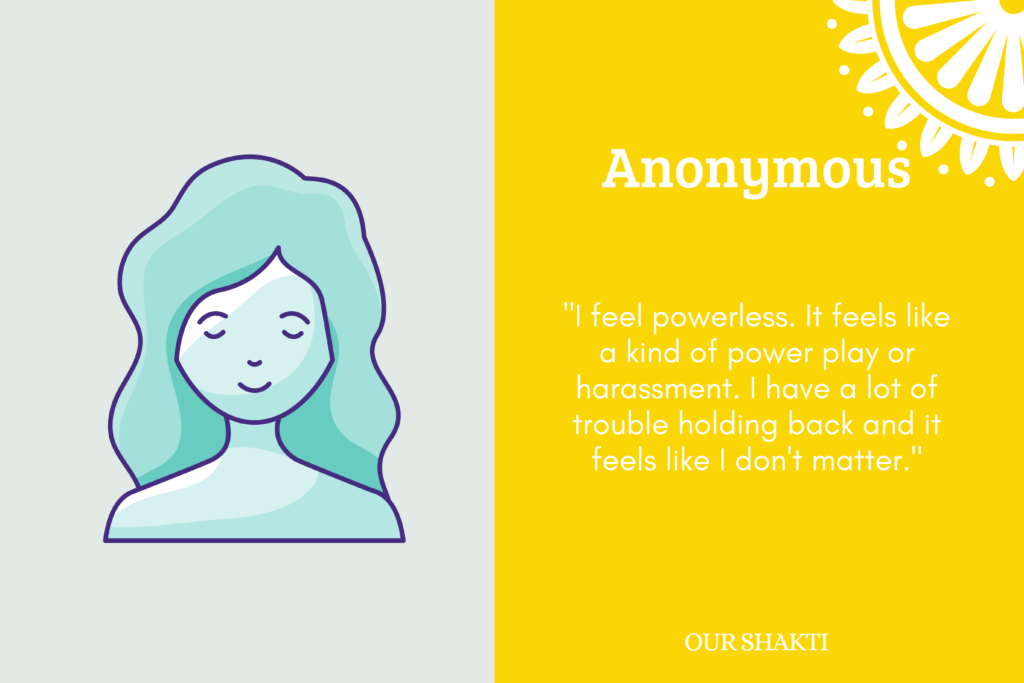The bond between a mother-in-law and a daughter-in-law has long been a subject of fascination and apprehension, often depicted in popular culture as a source of tension and conflict. While some fortunate individuals find themselves seamlessly woven into their extended family, many others encounter the challenges of navigating the intricate dynamics of this delicate relationship. From clashing expectations and differing perspectives to the weight of traditional roles and modern values, the journey of forging a harmonious connection between these two pivotal figures can be riddled with complexities that require patience, understanding, and an unwavering commitment to mutual respect. In this interview, the interviewee opens up about her relationship with her mother-in-law. The interviewee is 30 years old. She loves tennis and swimming. She works in healthcare.
The first time you met your in-laws, what was one of the first things you thought, “Oh, this is different from how I am raised.”
I noticed that my husband’s parents are highly dependent on their children. His parents could not pick up small tasks themselves, such as calling someone or doing groceries. My husband and his siblings were often involved in the parents’ daily tasks, which was expected of them. If they didn’t do those tasks, I had the feeling that the parents would respond negatively to this. His parents also don’t apologize. It’s a big deal when that happens. This is different from how I was raised. My parents figure out things for themselves. If they asked if I could do something for them and I said “no”, they would listen to me. I never had the feeling that children were not being listened to as equals.
How would you describe your upbringing? How is it different from your husband’s family?
My parents have always given me the feeling that I have an equal say in certain matters. I am being listened to seriously. No assumptions are made. As far as other upbringing is concerned, it does not differ much from my husband’s family. I think there is a different dynamic, just like with many other families. My husband’s family is much closer than the family I come from.
Can you explain the difference?
I think a big difference is that the family I come from consists of both sons and daughters, while his family consists of sons only. I don’t know if that is the main reason, but it does create a different dynamic than when there are daughters in a family.
In addition, a few customs have been adopted from the country of origin, which they still hold on to quite firmly. I am a bit more open-minded about these customs. This may partly be because I am naturally critical of this, but I also think because they have certain views of which they think that there is no other way and you just have to accept it. So there is more emphasis on how you should behave.
What expectations does your mother-in-law have of you?
Perhaps partly because of the above, but I soon noticed that my mother-in-law makes a difference between sons and daughters. Her views on women and how women should be are very, in my opinion, orthodox. For example, women are supposed to clean or cook, and if you have a child, it is better to stay home to take care of the child.
To what extent is it difficult that she has expectations that you disagree with?
I don’t want to offend her, but some expectations go against my principles. I strongly disagree with her. I can’t act on that, which puts me in a dilemma. I feel powerless. It feels like a kind of power play or harassment. I have a lot of trouble holding back and it feels like I don’t matter. Sometimes I even doubt myself and wonder if it is my fault that I cannot meet the expectations or find them too much. My husband does not always understand where I come from and often thinks that I can adapt. My mother-in-law has a negative image of me because I am ‘the girl who doesn’t listen’.
Why do you think she tries to impose those expectations?
I honestly feel like she doesn’t have bad intentions. She just has the feeling that she knows better and knows how to behave as a woman. Anything that deviates from her perspective is weird or wrong.
Have you found a way to deal with those expectations?
Not really yet. I try to discuss it, or I try to adapt as much as possible. But I think that’s a shame because it often goes against my principles and own character. I no longer recognize myself and it feels as if I am fading away.
To what extent do you think something should be brought up by you or her son?
I would appreciate it if her son would say something about it occasionally. He knows his mother better than me, and he knows me too. I think that it is an important, but also challenging task for a man to find a healthy dynamic between his wife and mother or to facilitate that. Of course, some things need to be addressed between daughter-in-law and mother-in-law. You can talk to each other directly. I think that is also healthy and good. The man should stay out of that conversation. However, he can talk about it with his wife in private.
What advice would you give to women who disagree with their mother-in-law?
I would advise women to decide whether the issue is something they want to address in a conversation with their mother-in-law or if they need help from their husband. See how you can discuss this with her in a respectful manner. I would especially try not to speak from negative emotions such as anger. I think you can try to start the conversation from vulnerability. In many cases, she has been in your position.
What would your advice be for mother-in-laws?
I would advise them to put themselves in their daughter-in-law’s shoes. Talk more about her feelings if she wants to open up. Occasionally admit that things could be different. You were once a daughter-in-law yourself, so that shouldn’t be that difficult. Above all, try to realize that she is also someone’s daughter and child. You wouldn’t want your daughter to be treated like that, would you?

